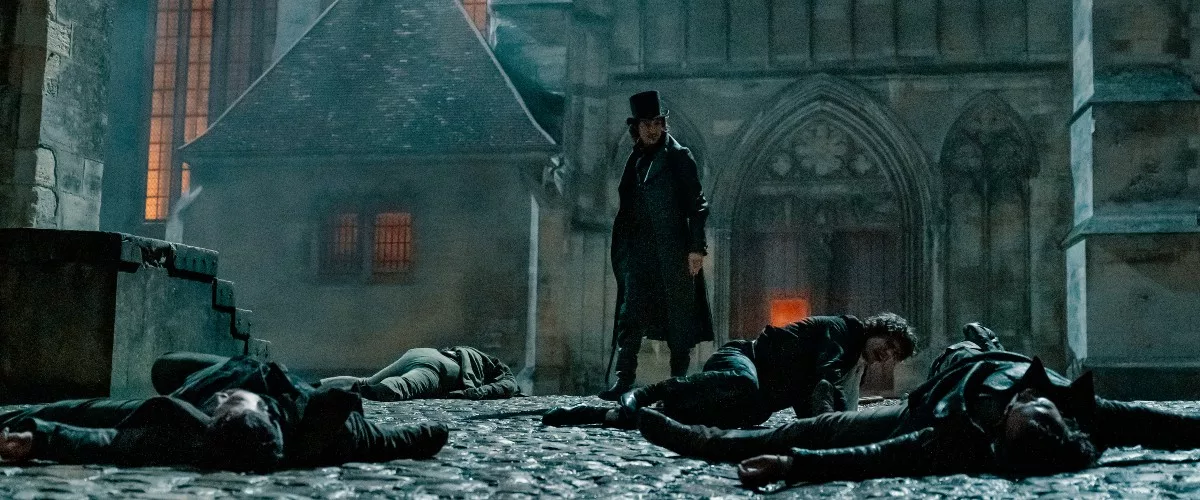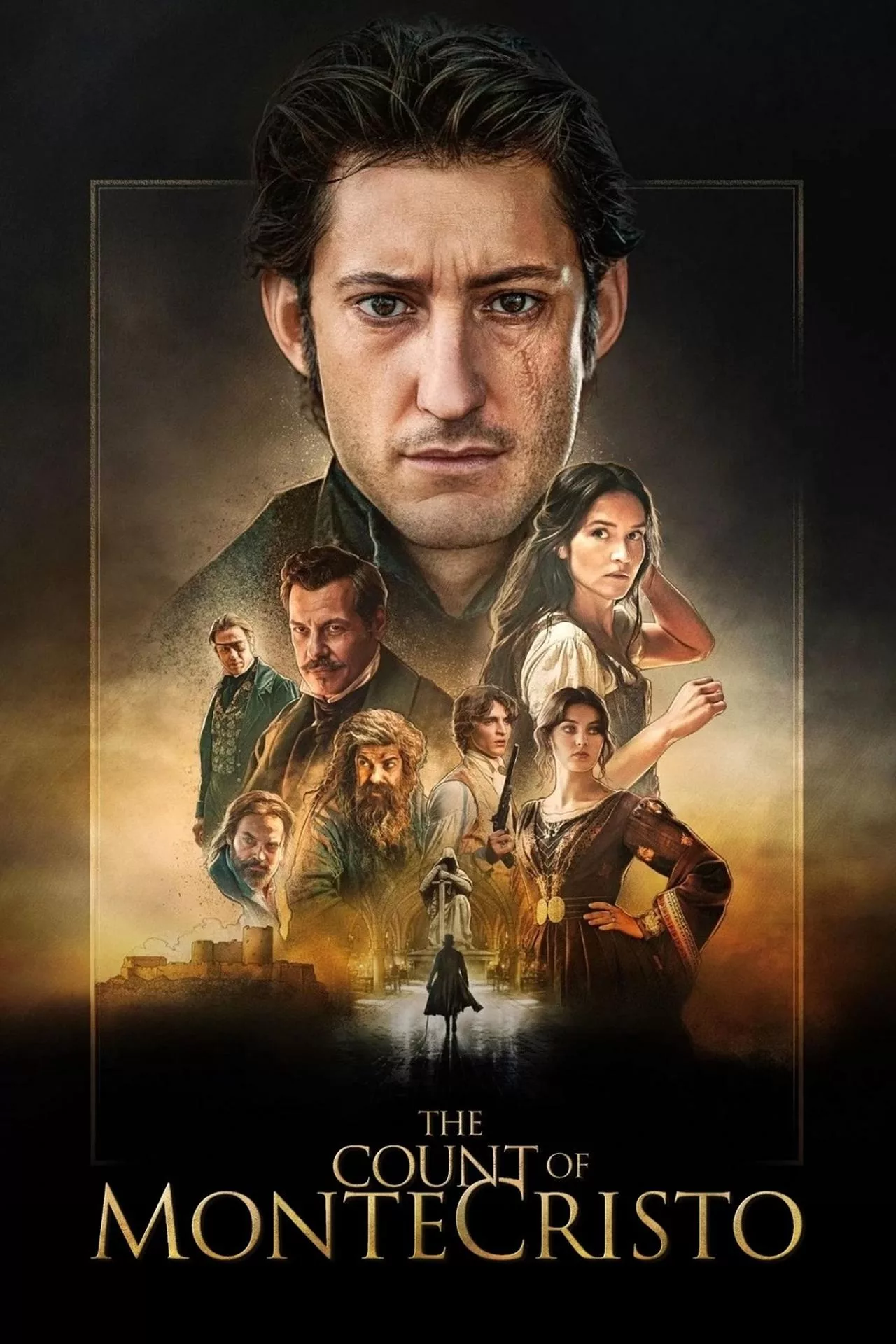There’s a reason Alexandre Dumas’s “The Count of Monte Cristo” has proven so durable: it’s satisfying as hell. This story of false imprisonment and meticulously executed comeuppance is the ur-text of the revenge thriller, adapted countless times for the silver screen; American audiences of a certain age most likely recall the 2002 version from “Waterworld” director Kevin Reynolds, and if they’re not familiar with that one, there’s always its extended shout-out in “The Shawshank Redemption.”
The new French-language adaptation is written and directed by the duo of Alexandre de La Patellière and Matthieu Delaporte, who penned last year’s wildly successful two-part adaptation of Dumas’s “The Three Musketeers.” It checks many of the same boxes as those handsomely mounted swashbucklers, but what makes it special, amongst both adaptations of this particular story and of revenge stories in general, is its acknowledgment of the knotty ethical implications of such a tale. Patellière and Delaporte foreground the moral complexity in a way that the Count’s copious heirs often do not.
They grab us with an arresting, visceral opening: a storm at sea, a ship in flames, a damsel in distress. She is saved by sailor Edmond Dantès (Pierre Niney), ignoring a direct order from his priggish captain, Danglars (Patrick Mille), who reports Dantès for insolence and insubordination—but Danglars is disciplined instead, and Dantès is promoted to captain. This is a meaningful boost for the sailor, who is marrying, well above his station, the rich Mercédès (Anaïs Demoustier). Alas, it’s not meant to be; he is arrested at his own wedding (rude), framed by his fuming former captain and corrupt prosecutor Gérard de Villefort (Laurent Lafitte) for espionage, the innocent man wrongly accused.
Years pass. In prison, Dantès is beaten, bruised, and left to rot, sustained only by his memories of Mercédès. But in the next cell, he finds a friend in Abbé Faria (Pierfrancesco Favino)—and a mentor, both in the letters and in the particularly handy skill of jailbreaking. Training and digging montages ensue, as well as the imparting of an important piece of information: the location of the treasure Abbé was imprisoned for stealing, which he promises to split with Dantès should they pull off their escape.
That they do, in a sequence that’s thrilling both in what it shows and hides. Here we see the neat trick that Patellière and Delaporte will pull throughout the picture: intercutting preparation and execution without giving away the full plan. Dantès takes on the identity of the title character, working up an elaborate scheme to exact his revenge on the three men he holds responsible for taking everything from him—Danglars, de Villefort, and former friend Fernand de Morcerf (Bastien Bouillon), who stole Mercédès in his absence—with the help of young Andrèa (Julien de Saint Jean), and Haydée (Anamaria Vartolomei), who have motives of their own. “From now on, I reward, and I punish,” Dantès vows, and he does just that.
If this all sounds overly convoluted, it is—but delightfully so, and Patellière and Delaporte’s sturdy adaptation preserves the large cast of colorful characters and twists of the narrative without sacrificing clarity. Some of this is just good old-fashioned dramatic flair (the reveal of exactly how the prison break goes right when it seems to go very wrong is breathtaking), but the skill of the characterizations mostly accomplishes it. We’re drawn into their righteous revenge, a multi-pronged front of physical and psychological warfare, lies and deceptions and seductions. But we also care about these characters and the genuine emotional stakes; when Dantès, in his Count disguise, comes face to face with his long-lost love, there’s gentleness and vulnerability in his confession-that’s-not to her. There’s real acting happening here, which is not always on the menu in a big, broad adventure tale.
Nor are the ethical ripples presented in the third act, in which Dantès discovers that no man can descend into this kind of mud without getting it all over himself. There is no doubting the vileness of his sworn enemies, but the shotgun blast of his revenge ends up nicking comparatively innocent bystanders. When he’s called on that collateral damage, he refuses to back down. “If I give up my quest for vengeance, I give up the only force keeping me alive,” he insists, but in fact, it’s the opposite; he becomes so hell-bent on revenge that he loses touch with his humanity. Niney is excellent in the role, pivoting convincingly from the fresh-faced, idealistic hero to the ruthless, stubborn antihero.
“The Count of Monte Cristo” is an energetic, entertaining treat, full of noble heroes, fair maidens, evil villains, duels at dawn, and swashbuckling sword fights. The cinematography is lush, the vistas are wide, the costumes are gorgeous, the music is dramatic, and the running time is expansive. And yet American filmmakers have (for the most part) forgotten how to make this kind of a good, old-fashioned epic, in favor of lumbering, muddy, uninspired slabs of IP exploitation. it’s a shame, really, that this foreign film, from an art-house distributor, is scratching an itch we didn’t used to have to outsource.



















